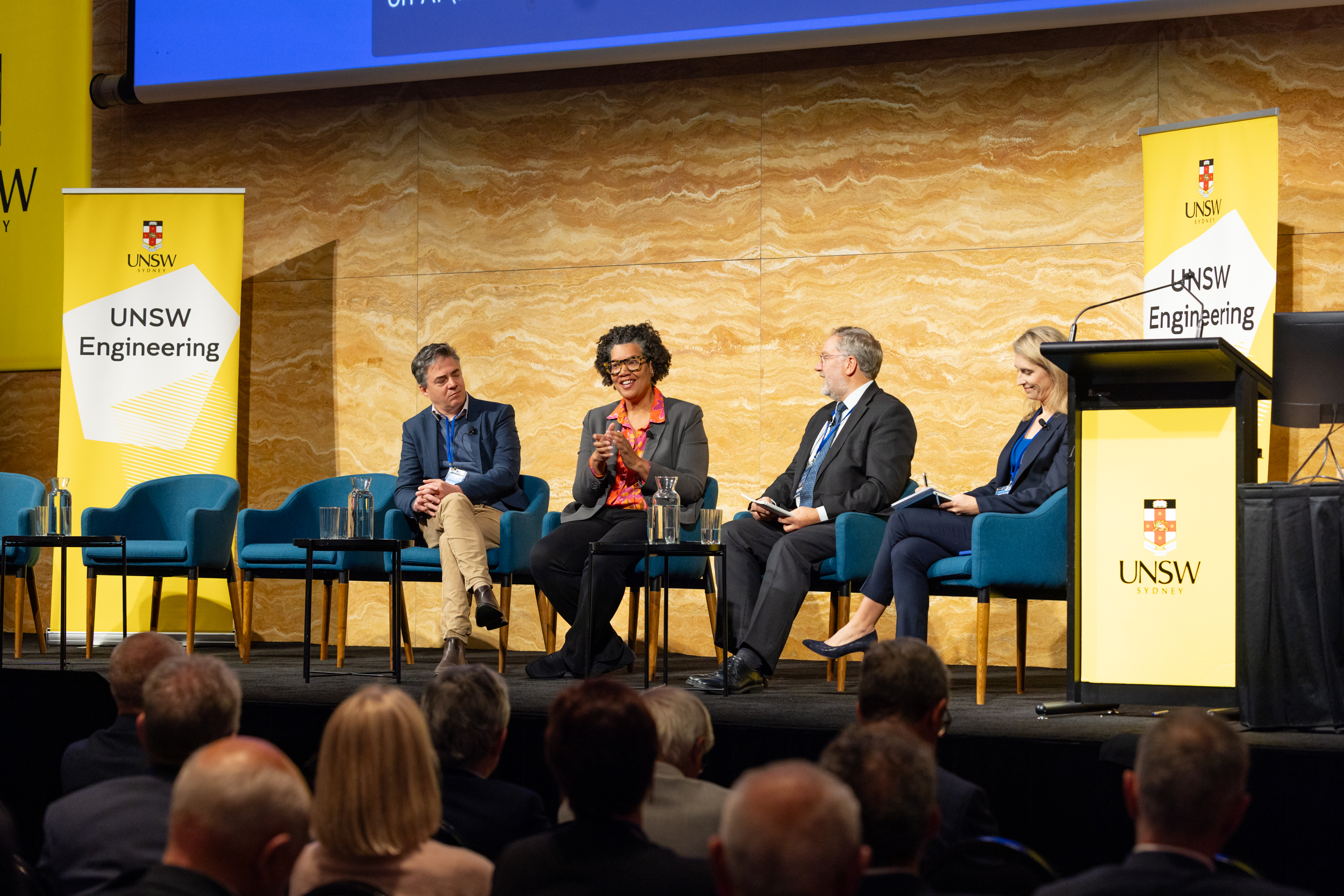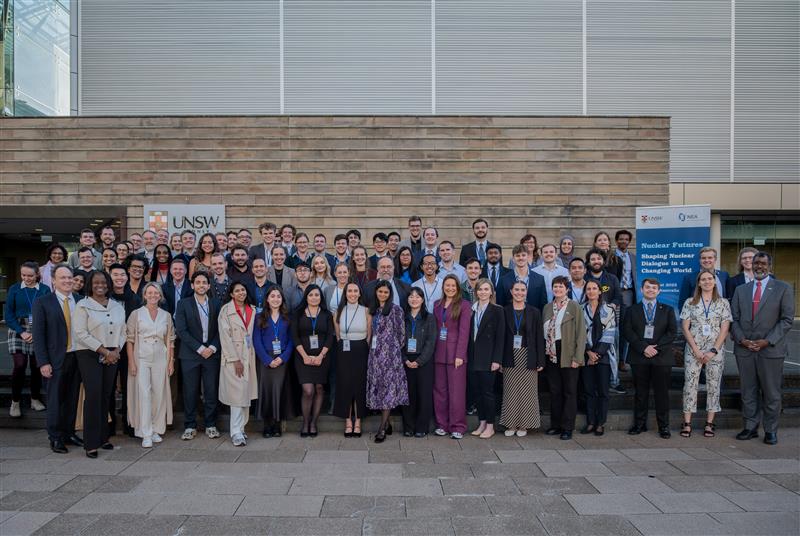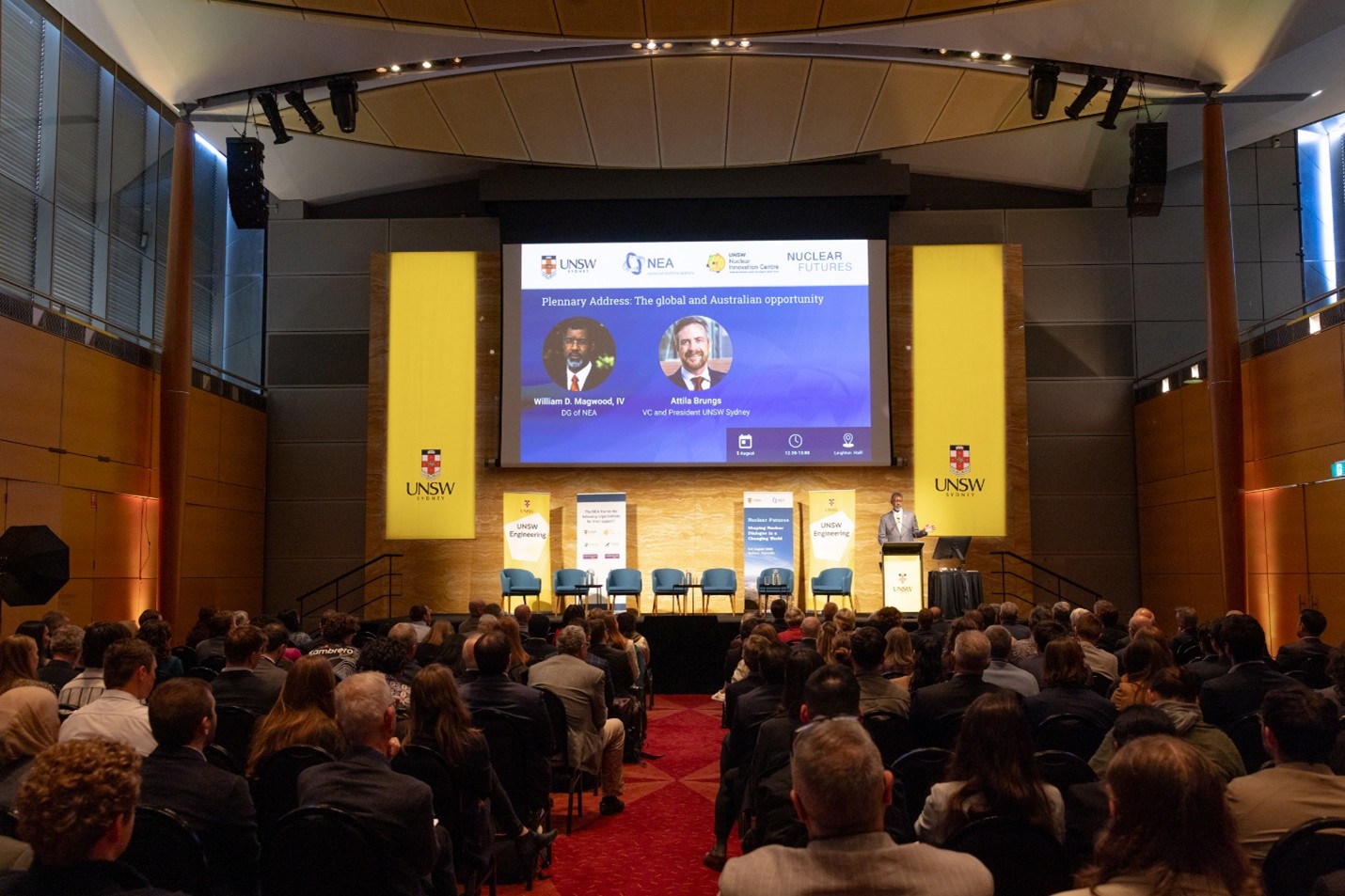Approximately 250 international experts and early career professionals joined together in Australia on 4-6 August 2025 at the inaugural NEA Nuclear Futures: Shaping Dialogue in a Changing World event. The event was held in collaboration with the University of New South Wales Sydney (UNSW) and the UNSW Nuclear Innovation Centre to discuss global perspectives and key questions concerning the application of nuclear technologies and innovation in society.
A key focus of the three-day event was the need to engage a broad range of skillsets in science, technology, engineering and mathematics (STEM) and non-STEM disciplines to build a robust workforce and strong nuclear supply chains to meet global needs. The NEA invited delegates to participate in three days of activities aiming to foster collaboration and intergenerational knowledge exchange.
The event started with a site visit to Australia’s Nuclear Science and Technology Organisation (ANSTO). As part of the visit, 32 delegates had an opportunity to visit the Open Pool Australian Light-Water (OPAL) multi-purpose reactor, the Centre for Accelerator Science (CAS), the Australian Centre for Neutron Scattering, the National Research Cyclotron and the National Deuteration Facility.

Delegates inside the ANSTO visitor centre.
Following the site visit, delegates participated in a full day conference to discuss the context of nuclear technology, global policies and workforce development. Sessions featured senior leaders from the international nuclear sector and covered the nuclear fuel cycle and related areas. The morning started with an interactive fireside chat, moderated by Helen Cook, a Principal at GNE Advisors, and featuring Aleshia Duncan, Deputy Assistant Secretary at the US Department of Energy, Jonathan Fisher, CEO of Cauldron Energy Limited, and Robin Grimes, the former advisor Chief Scientific Advisor to the UK Foreign and Commonwealth Office, to discuss how the international community can further collaborate for global energy security.

Bringing perspectives from Australia, Europe and North America, the speakers highlighted the importance of collaboration and addressed opportunities for young people and early career professionals from nuclear and non-nuclear sectors to engage with the nuclear sector on domestic and international levels. The panels throughout the day allowed participants to discuss different areas of nuclear science and technology in the context of career and workforce development – including topics such as radioactive waste management, nuclear security, nuclear safety, social licensing and building a robust workforce and supply chain.
The event closed with a day-long mentoring workshop with participation by 82 delegates, during which 65 early career professionals learned from leaders in the nuclear sector and explored the potential of a career in the nuclear sector. After sharing inspiring stories, the invited delegates had opportunities to discuss in detail abstracts and presentations that featured a diverse range of aspects of nuclear energy, science and technology, along with the human and societal aspects of nuclear.


